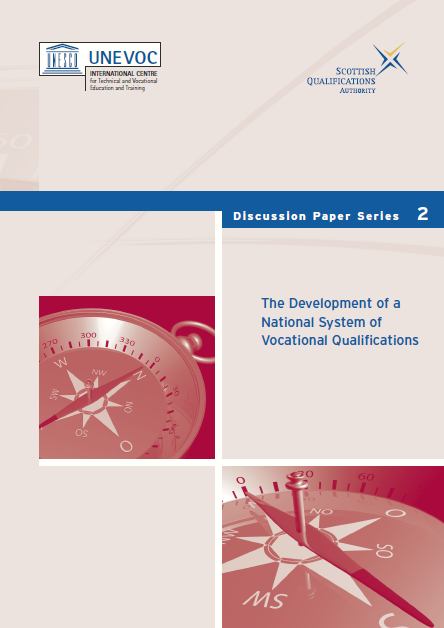
The UNESCO-UNEVOC International Centre: Who We Are | What We Do | Working With Us | Get in Touch
The UNEVOC Network: Learn About the Network | UNEVOC Network Directory
For Members: UNEVOC Centre Dashboard
Thematic Areas: Inclusion and Youth | Digital Transformation | Private Sector Engagement | SDGs and Greening TVET
Our Key Programmes & Projects: BILT: Bridging Innovation and Learning in TVET | Building TVET resilience | TVET Leadership Programme | WYSD: World Youth Skills Day
Past Activities: COVID-19 response | i-hubs project | TVET Global Forums | Virtual Conferences | YEM Knowledge Portal
Our Services & Resources: Publications | TVET Forum | TVET Country Profiles | TVETipedia Glossary | Innovative and Promising Practices | Toolkits for TVET Providers | Entrepreneurial Learning Guide
Events: Major TVET Events | UNEVOC Network News

| Author/s: | Scottish Qualifications Authority |
| Publisher/s: | UNESCO-UNEVOC International Centre for Technical and Vocational Education and Training |
| Published: | 2006 in Bonn, Germany |
| ISSN: | 1817-0374(1-1) |
| ULC: | UNEVOC Library Catalogue ID 4221 |
The National System for Qualifications and Vocational Educational and Training (SNCFP) consists of instruments and actions which are necessary to promote and develop the integration of vocational education and training through the National Catalogue of Professional Qualifications. Besides, it aims at promoting and developing the assessment and accreditation of professional competences in order to encourage the professional and social development of the people and to meet the needs of the productive system.
Its basic principles are the following:
•The personal development when exercising the right to work and to choose freely a work or job.
•To meet the needs of the productive system and of employment on a lifelong basis.
•The equal access of all citizens to the different modalities of vocational education and training.
•The participation and cooperation of social agents with public authorities.
•To adapt the training and qualifications to European Union standards.
•The participation and cooperation among the different Public Administrations.
•The promotion of the economic development taking into account the regional needs regarding the productive system.
The development of the National System for Qualifications and Vocational Education and Training promotes the collaboration of Social Agents with Public Administrations, universities, chambers of commerce and educative entities.
Procedures of collaboration and consultation with the different productive sectors and the social partners have been established in order to identify and update the needs for qualifications, as well as their definition and the definition of the associated learning.